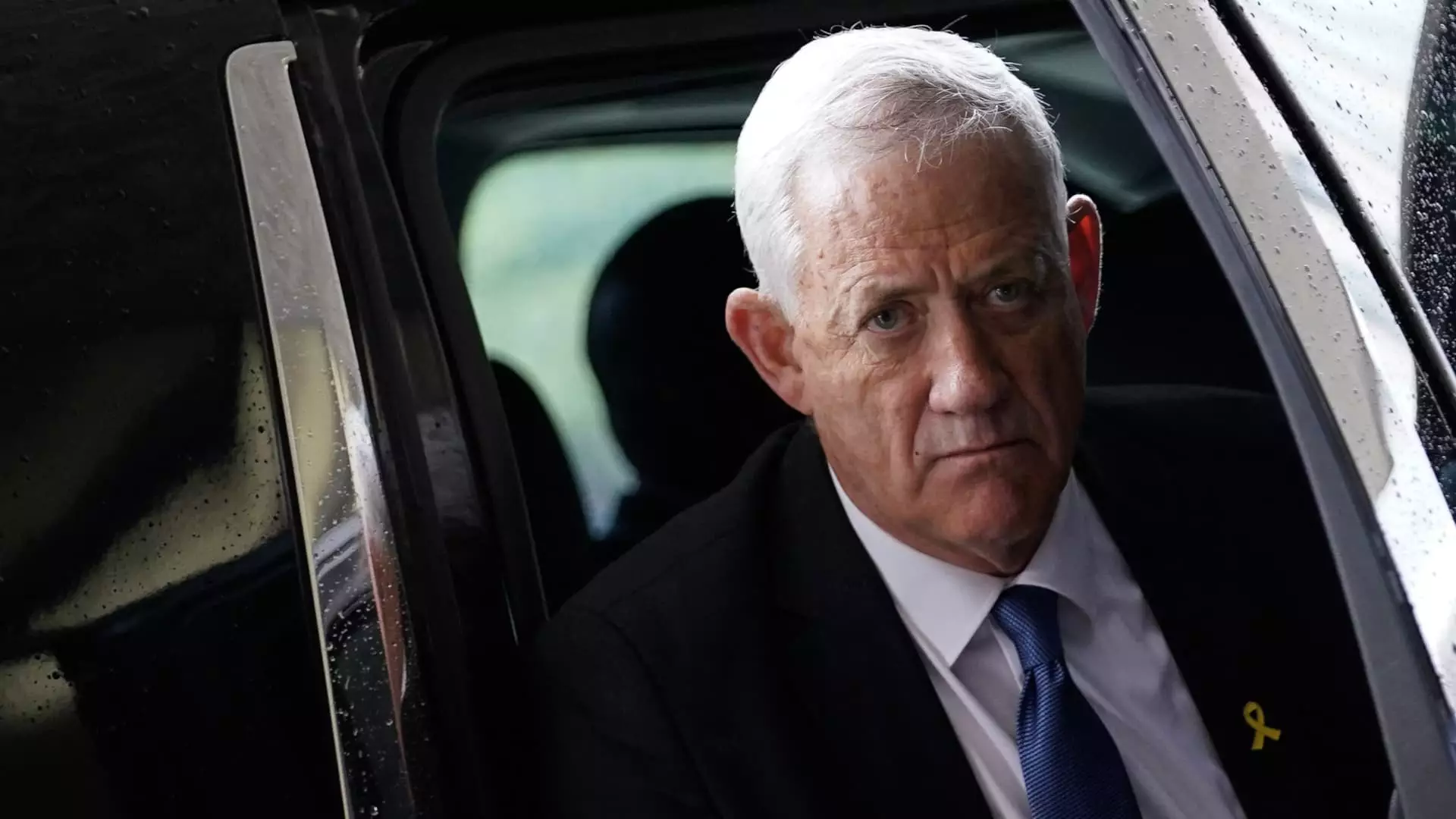The recent announcement by Benny Gantz, a centrist member of Israel’s War Cabinet, to resign from the government if a new plan for the war in Gaza is not adopted within three weeks has sparked controversy. This move would potentially leave Prime Minister Benjamin Netanyahu more reliant on his far-right allies, highlighting the internal divide within Israel’s leadership. Gantz’s six-point plan includes the return of hostages, ending Hamas’ rule, and demilitarizing Gaza, among other objectives. The threat to resign if the plan is not adopted by June 8 reflects a growing dissatisfaction with the current approach to the ongoing conflict.
The departure of Gantz, a popular politician and former military chief of staff, would significantly impact the dynamics within the War Cabinet. This would leave Netanyahu vulnerable to the influence of his far-right allies who advocate for a more aggressive stance in the negotiations with Hamas. The pressure on Netanyahu to outline a postwar vision for Gaza is mounting, with conflicting opinions within his government on how to proceed. The ongoing military offensive on Rafah, the southernmost city in Gaza, has faced criticisms from the U.S. and other allies over concerns about the humanitarian crisis unfolding in the region.
The involvement of key international players like the U.S. and Saudi Arabia in the conflict adds another layer of complexity to the situation. The visit of U.S. national security adviser Jake Sullivan to Saudi Arabia and Israel underscores the urgency of finding a resolution to the crisis. Netanyahu’s assertion that Israel would “stand alone” if necessary highlights the growing isolation of the country in the face of mounting international pressure. The lack of progress in the ceasefire negotiations, despite mediation efforts by Qatar, the U.S., and Egypt, has prolonged the suffering of civilians caught in the crossfire.
The humanitarian crisis in Gaza, exacerbated by the ongoing conflict, has led to widespread displacement and loss of life. The discovery of the bodies of hostages killed by Hamas has underscored the urgency of finding a resolution to the crisis. The lack of a clear vision for post-conflict governance in Gaza has further complicated the situation, with differing opinions on how to move forward. The toll of the conflict on both Palestinians in Gaza and Israelis living in fear of attacks highlights the need for a swift and decisive resolution to the crisis.
The escalating crisis within Israel’s War Cabinet reflects the deep-rooted divisions within the country’s leadership. The threat of resignation by Benny Gantz and the growing pressure on Netanyahu to outline a path towards peace underscore the urgency of finding a resolution to the conflict. The involvement of international actors adds another dimension to the crisis, with implications for regional stability and global security. Only through dialogue, cooperation, and a commitment to finding common ground can a lasting peace be achieved in the region.


Leave a Reply